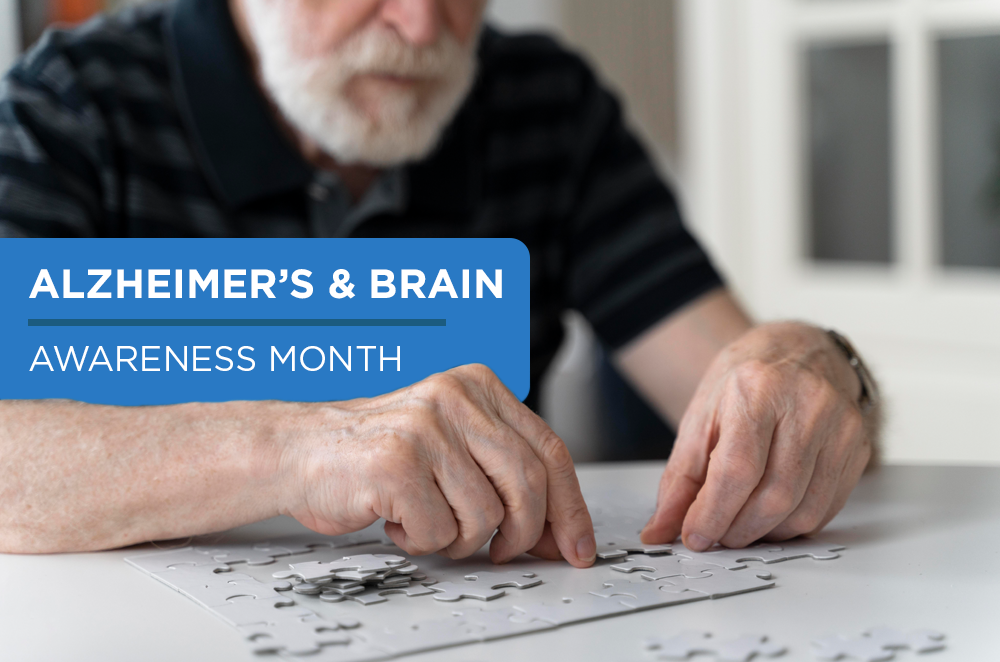June holds a special significance as we recognize Alzheimer’s and Brain Awareness Month. Indeed, this annual observance is a great opportunity to shed light on Alzheimer’s disease and other dementias, foster greater understanding, and encourage proactive brain health strategies in our community.
Understanding the Impact of Alzheimer’s
Alzheimer’s disease is the most common form of dementia, a progressive disease that impairs memory, thinking, and behavior. It’s not a normal part of aging, and its impact extends far beyond the individual, affecting families and caregivers deeply. To illustrate, consider these powerful statistics from the Alzheimer’s Association:
- More than 6 million Americans are living with Alzheimer’s. By 2050, this number is projected to rise to nearly 13 million.
- Alzheimer’s is the 7th leading cause of death in the United States.
- In 2024, Alzheimer’s and other dementias will cost the nation an estimated $360 billion. By 2050, these costs could reach nearly $1 trillion.
- Approximately two-thirds of Americans with Alzheimer’s are women.
While significant strides are being made in research, there is currently no cure for Alzheimer’s. This makes awareness, early detection, and support for those affected incredibly important.
The Power of Alzheimer’s Awareness
So, why is Alzheimer’s and Brain Awareness Month so vital?
Reduces Stigma: Openly discussing Alzheimer’s helps to dismantle the stigma often associated with cognitive decline, thereby encouraging individuals and families to seek help and support without shame.
Promotes Early Detection: Understanding the early signs and symptoms can lead to earlier diagnosis, which in turn, allows for access to treatments that may help manage symptoms, plan for the future, and participate in clinical trials.
Educates on Risk Reduction: While some risk factors for Alzheimer’s (like age and genetics) are not modifiable, many are. Awareness campaigns educate the public on lifestyle choices that can support brain health and potentially reduce the risk of cognitive decline.
Highlights Research and Support: This month is a chance to recognize the invaluable work being done by researchers and to highlight the resources available for patients and caregivers.
What You Can Do for Your Brain Health
At CCMH, we believe in empowering our community with knowledge. While there’s no guaranteed way to prevent Alzheimer’s, adopting a brain-healthy lifestyle can significantly contribute to overall cognitive well-being. Here are some key areas to focus on:
Stay Physically Active: Regular exercise increases blood flow to the brain and can improve memory and thinking skills. Aim for at least 150 minutes of moderate-intensity aerobic activity per week.
Maintain a Healthy Diet: A diet rich in fruits, vegetables, whole grains, and lean proteins, similar to the Mediterranean diet, has been linked to better brain health.
Get Enough Quality Sleep: Sleep is crucial for memory consolidation and cognitive function. Aim for 7-9 hours of quality sleep per night.
Challenge Your Mind: Engage in mentally stimulating activities like reading, learning a new skill, playing strategic games, or solving puzzles.
Stay Socially Engaged: Social interaction can help keep your mind sharp and reduce the risk of isolation, which can impact cognitive health.
Manage Chronic Conditions: Effectively managing conditions like high blood pressure, diabetes, and high cholesterol is vital for brain health.
Protect Your Head: Head injuries can increase the risk of dementia. Always wear a helmet when cycling or engaging in activities that carry a risk of head trauma.
Your Partner in Comprehensive Care
We are committed to the health and well-being of our community. If you or a loved one is experiencing concerns about memory or cognitive changes, we encourage you to speak with your primary care physician. Our healthcare professionals are here to provide compassionate care, guidance, and connect you with appropriate resources.
Caring for a loved one with Alzheimer’s can present unique challenges, and supporting their behavioral health is a crucial part of their well-being. Individuals with Alzheimer’s may experience changes in mood, personality, and behavior, which can be distressing for both them and their caregivers.
Our Behavioral Health Services offer care and support for individuals and families navigating these complex journeys. From managing agitation and depression to providing coping strategies for caregivers, we understand the intricate needs involved. Find out how we can help 👉 https://www.ccmhhealth.com/behavioral-health-services/
This June, as we observe Alzheimer’s and Brain Awareness Month, let’s join together to raise awareness, support those living with Alzheimer’s, and champion brain health for everyone.
Resources:
Disclaimer:
The Comanche County Memorial Hospital website does not provide specific medical advice for individual cases. Comanche County Memorial Hospital does not endorse any services obtained through information provided on this site, articles on the site or any links on this site.
Use of the information obtained by the Comanche County Memorial Hospital website does not replace medical advice given by a qualified medical provider to meet the medical needs of our readers or others.
While content is frequently updated, medical information changes quickly. Information may be out of date, and/or contain inaccuracies or typographical errors. For questions or concerns, please contact us at contact@ccmhhealth.com.

